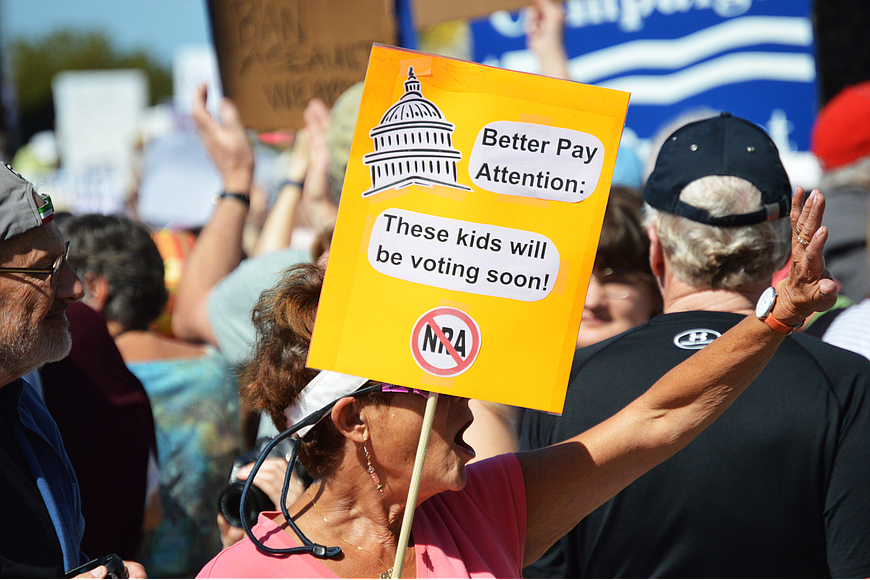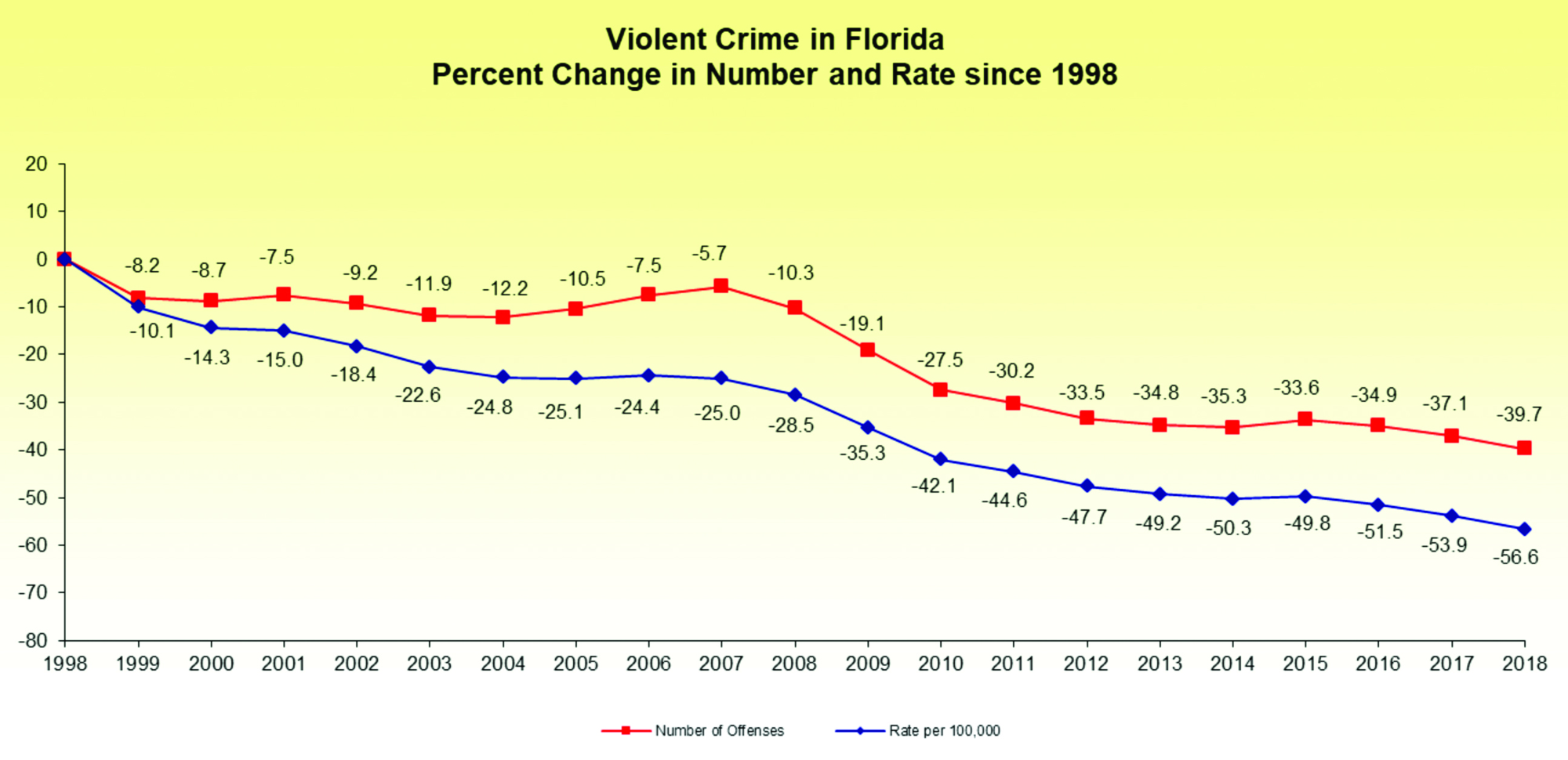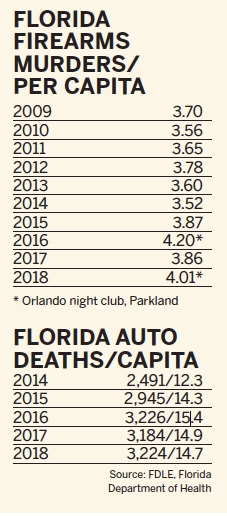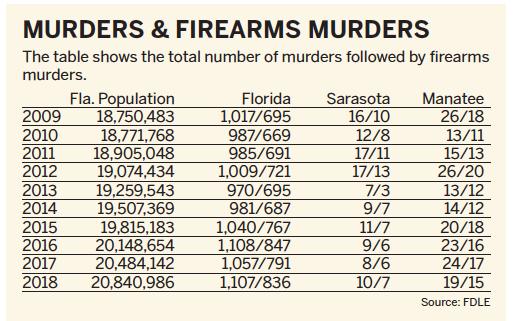- April 27, 2024
-
-
Loading

Loading

To be sure, the tragedies in El Paso, Dayton, Parkland, Orlando, Las Vegas, Pittsburgh and all the others can never be minimized. Horror magnified. You can understand the public’s urge to want solutions to stop another.

But the predictable responses of the politicians — bloviating to place blame on their opposition — have a way of wearing thin and making matters worse. Their answer, always: more laws. As if more laws will be the antidote or the cure to control evil or stop a mangled mind.
Perhaps we shouldn’t dismiss them for trying. But as the great Thomas Sowell often said: There are no solutions, only choices.
And the choices lawmakers want to adopt virtually always come at the cost of sacrificing law-abiding individuals’ freedom and expanding the coercive power and control of government — while never eradicating, stopping or curing the wrong. One argument is if that’s what it takes to save one life, it’s worth sacrificing people’s freedom.
But are more laws necessary? And what would these laws actually solve?

Look at the accompanying graph on violent crime in Florida. It has declined 56.6%, from 906 offenses per 100,000 population in 1998 to 393 in 2018, while Florida’s population had increased 39% in the same period.
Firearms murders per capita over the past 10 years have remained roughly the same as Florida’s population has grown — with the exceptions of 2016 and 2018. Those are the years the state endured the Orlando night club and Marjory Stoneman Douglas school shootings.
Do these data trends convey what state Democrat lawmakers call the “epidemic” and “scourge of gun violence” that motivated them to call for a special legislative session? Just compare gun deaths per 100,000 to auto deaths (see box). Where’s the outrage, the call for more laws?
Even many of Florida’s sheriffs took a skeptical view of the six measures the Democrat lawmakers want to adopt. It just so happened Florida’s sheriffs association members were meeting this week in Orlando to discuss what their positions would be on various issues. When we spoke to Sarasota County Sheriff Tom Knight on Monday, he told us that what matters to him and many of the sheriffs is not emotions but data.
To that end, Knight told us: “We don’t see any data that puts Florida out of line with other states, especially the states with assault weapons laws. Florida gun laws are pretty comprehensive as they are. We don’t believe they are flawed at all.”
We also spoke to Dr. John R. Lott, founder and president of the Crime Prevention Research Center and one of the foremost recognized experts on the relationship between gun regulation and public safety. We asked him to comment on the six measures Democrats want codified into Florida law. Here’s what he said on four of the proposals:
Require background checks for the transfer of all firearms.
This idea is aimed mostly at stopping individuals from giving a gun to a family member, friend or anyone without first registering the transfer with the standard background check required when guns are purchased from retailers. Picture a father passing a hunting rifle down to his son. That’s what lawmakers want to stop.

But one of Lott’s responses to this is the fact such a law would not have stopped one mass shooting in the modern history of the U.S. In every mass shooting, Lott says, the shooter either passed the background check when he purchased his weapon(s) or stole his weapons.
“The reason they want to do this [new] type of background check is simply to make it more costly to have a gun,” Lott said.
Lott also argues that when states impose fees on gun buyers for background checks, the states often are placing a costly burden on the people who need protection the most but who can least afford the fees.
Prohibit the sale, transfer or possession of large capacity magazines.
Lott: “A magazine, which is basically a metal box with a spring, is trivially easy to make and virtually impossible to stop criminals from obtaining. The 1994 legislation banned magazines holding more than 10 bullets yet had no effect on crime rates.
“The real effect on this is for law-abiding citizens. Concealed handgun permit holders almost always only carry the magazine that is in their gun, not an extra one. Even if a mass public shooter were to use a smaller magazine, they will bring extra magazines with them.”
Reduce the duration of licenses required to carry concealed firearms.
Lott: “Why would that matter?” That would just add more burdens onto law-abiding permitted gun holders. “It is easy enough to check on whether people can still legally have a permit by simply running their names through the NICS system.”
Revise requirements for the safe storage of weapons in the home.

Lott: “Florida is one of only a few states that already classifies violations of safe storage laws as a felony. Florida’s law requires safe storage for any child in the home under age 16. I suppose that they could increase the age to 18, possibly they might say 21, but no state has it over 18.”
Expand the number of individuals that can petition a court for a risk-protection order where a gun owner is believed to be a risk to themselves or others.
Florida already has the Baker Act, but Lott said: “The reason I think they want a whole new law is that it is easier to have a new law that doesn’t have the procedural safeguards than it is to gut those safeguards in existing law.”
Would any of these measures actually stop the deranged madman from carrying out his evil, senseless plot for a mass shooting? Look up Chapter 790 in Florida’s statutes, Weapons and Firearms. It’s 40,481 words and, if printed, would take 90 pages. If you read the entire chapter, you would be impressed at how thorough it is. It already thoroughly covers background checks, extensive requirements to qualify for a concealed permit, waiting periods and mental-health issues. But even all of these details have not stopped mass shootings.
Perhaps start with this: Modern society — social media and entertainment, along with the decline in religion and faith — has embedded us with violence and devalued life. The problem is not a lack of laws.